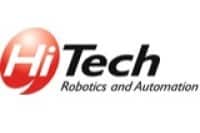Accounting treatment of an EOT
The EOT becomes the owner of the company, usually via a corporate trustee company (“the Trust”) set up to hold the acquired shares. The trust is administered by trustees on behalf of the employees, these trustees are statutory directors of the corporate trustee company.
At completion of the sale, it is the trust that acquires the shares in the trading business owes the consideration payable to the exiting shareholders of the trading company. Since the Trust will not own any cash or assets, the amounts payable on day one are contributed (similar in nature to a dividend) to the trust, and paid out to the exiting shareholders from the trust. The Trust does not require a separate bank account, and the payment itself can be transferred direct to the exiting shareholders from the trading company on behalf of the trust.
It is likely that the exiting shareholders will be owed further payments for the shares sold in the form of deferred consideration, which will be paid in instalments over a specified time frame, out of future profits of the trading company. At each deferred consideration payment date, similar to the initial completion payment, a contribution is declared in the trading company to the trust which is then used to make the payment due.
Is an employee ownership trust a discretionary trust?
An EOT is a type of discretionary trust, which essentially means that there are trustees who hold the legal title to the trust assets (i.e. the shares in the trading company) for the benefit of the beneficiaries (i.e. the employees). Employees are not allocated individual shares and therefore are deemed to have an “indirect ownership”.
It is a requirement that the EOT owns more than 50% of the shares in the trading company in order to qualify for certain tax incentives. In addition, there are numerous other conditions that need to be met and maintained in order to retain these tax benefits.
Our EOT advisers
We have advised many businesses to complete their transition to employee ownership. Hawsons have been working with businesses on EOTs since they were introduced in 2014, completing our first deal in 2016.
We are a member of the Employee Ownership Association who represent organisations that are employee-owned or transitioning to employee ownership across the UK.
Free initial meeting
Pete Wilmer
Corporate Finance Partner

Pete Wilmer
Senior Partner
Pete leads the Corporate Finance offering across the firm, having has spent much of his career within a large international accountancy firm and corporate banking before returning to Hawsons, where he started. Working with businesses of all sizes, Pete has an exceptional breadth of experience which he brings to the benefit of clients.
An early adopter and passionate believer in good employee ownership, Pete has helped numerous businesses transition to employee ownership and works extensively to promote the employee ownership model.
Related content
TMS Europe complete transition to an Employee Ownership Trust
Peter Wilmer and Jack Ware, members of the Hawsons Corporate Finance team, acted as lead advisors for TMS Europe Limited’s (“TMS”) transition into employee ownership. Ryan Fitzpatrick from Shakespeare Martineau LLP provided legal advice on the transaction. TMS Europe...
Hi-Tech Automation – 12 months into Employee Ownership
Employee Ownership is where the whole or part of a Company is owned by, or on behalf of, its employees. The government introduced some new and relatively generous tax reliefs for employee-owned companies in 2014 and since then Employee Ownership Trusts (“EOTs”) have...
Employee ownership trust problems
In this article, we are going to outline some of the problems that might arise if the transition to employee ownership is not managed and advised on correctly.Valuation of the company When selling your business to an EOT it is very important that you keep the...




